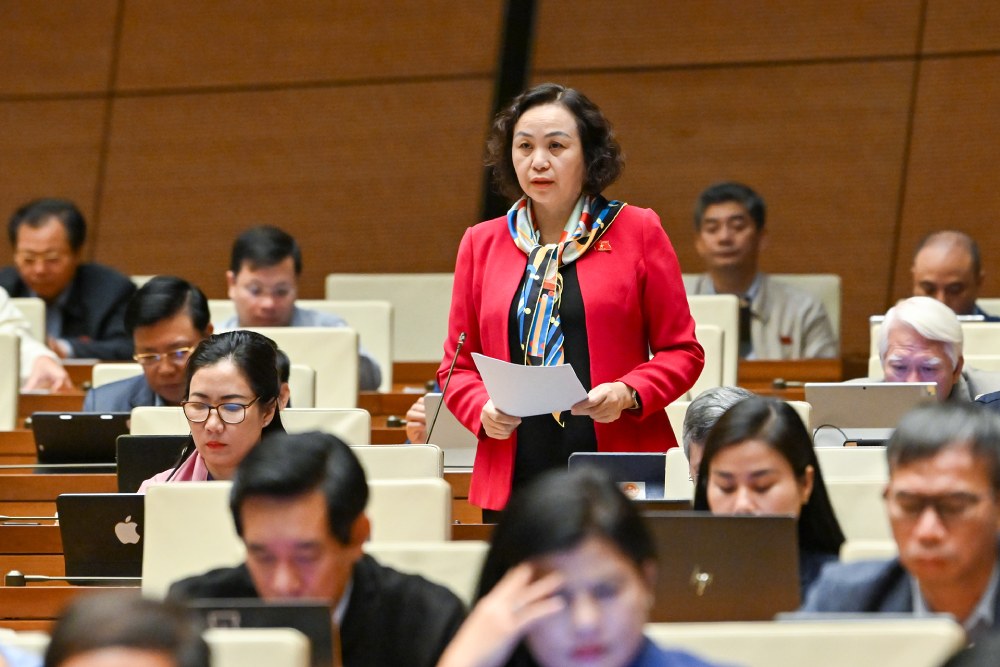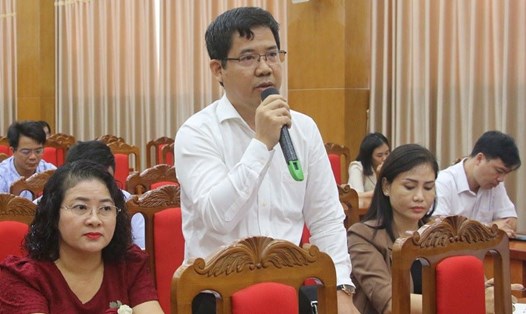On the morning of November 11, the National Assembly discussed in the hall the draft Law on Civil Judgment Enforcement (amended).
Delegate Nguyen Hoang Bao Tran (HCMC Delegation) said that in the context of the country promoting digital transformation, developing the knowledge economy and innovation, the enforcement of civil judgments plays an even more important role. Many cases today are not only related to tangible assets, but also to intellectual property, digital data, technology contracts and scientific research results.
Therefore, the law needs to cover the changes of a new life - where material and intellectual values are increasingly interwoven.
Delegates commented on the need to update the enforcement method for electronic assets and digital technology, especially in civil cases with high technology elements.
According to the delegate, in many cases, enterprises hold source codes, data, and software worth tens of billions of VND, but the current law does not have a mechanism for enforcement or legal transfer.
The female delegate proposed adding a new clause stipulating: " Assets are the right to intellectual property, data and software are considered special assets; the seizure and handling are carried out according to the instructions of the Ministry of Justice in coordination with the Ministry of Science and Technology".
Regarding the responsibility of the People's Committee at the commune level, the delegate said that it is necessary to supplement the role of the Department of Science and Technology in supporting the search and provision of information on patents, brands, and copyrights so that enforcement officers have a basis to verify when signing or enforcing.
In fact, this has not had a unified process, causing difficulties in handling intellectual property in civil cases.
Regarding the responsibility of agencies, organizations and individuals in the enforcement of civil judgments, Clause 2, Article 14 stipulates: "In case of opposition or obstruction of the enforcement of judgments, the civil judgment enforcement agency shall request the police force to ensure order and safety according to the provisions of law".

Delegate Cao Thi Xuan (Thanh Hoa Delegation) said that the above regulation is not really appropriate. Because according to regulations, in case there is resistance or obstruction of the enforcement of the judgment, the enforcement agency shall propose coordination with the police force.
In fact, in many cases, it is very difficult for the enforcement agency to predict whether there will be opposition or obstruction of enforcement or not.
According to the delegate, when resistance and obstruction occur, the enforcement agency that proposed the police force to coordinate may not be timely and effective.
Moreover, in practice, the organization of civil enforcement shows that if only the "single-scale" enforcement of the judgment is organized to enforce the judgment, the effectiveness will not be high. Therefore, it is necessary to have the cooperation of Party committees, authorities, police forces, courts, and prosecutors.
The delegate proposed to add the Civil Judgment Enforcement Office to have the right to request the police force to ensure order and safety according to the provisions of law. The draft law also needs to clarify which cases are considered to be opposed or hinder the execution of judgments to have a basis to request the police force to ensure order and safety.











